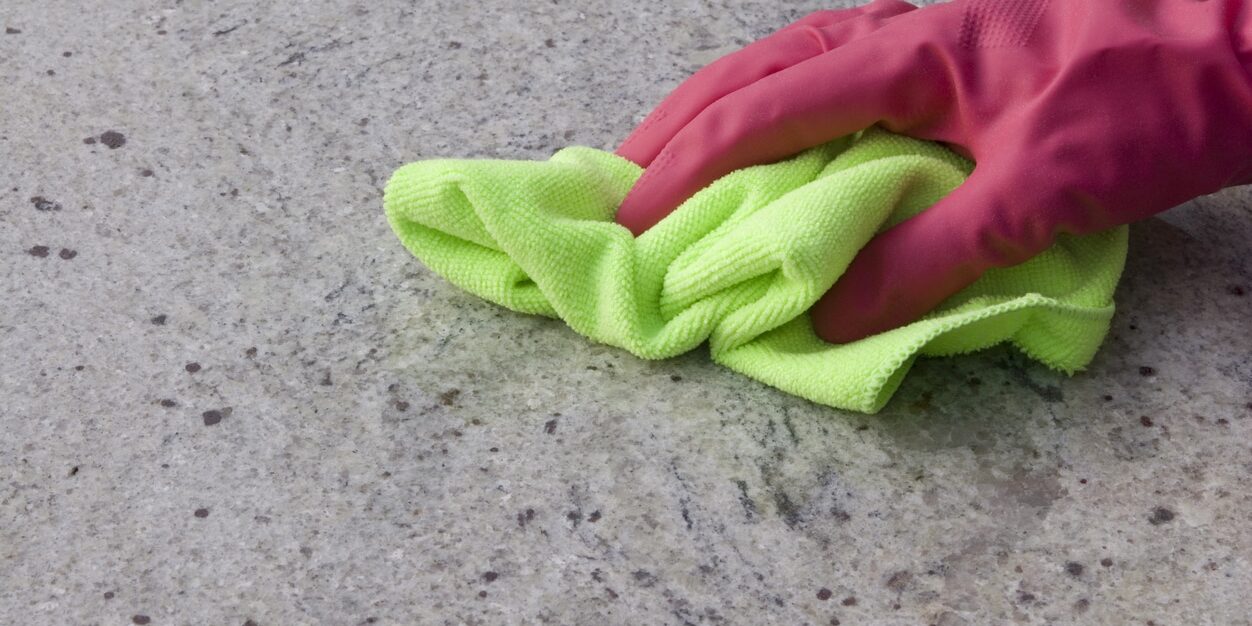What Types of Cleaners are Best for Granite Countertops?

You’ve invested a lot in granite countertop installation, so of course, you want to take the best possible care of your new surfaces. Maintaining that beautiful shine may be easier than you think. Granite is naturally antibacterial, heat resistant and it’s harder than marble, but it does require a small amount of special consideration.
Testing Your Granite Countertops: Are They Sealed?
Before you select a cleanser, it’s crucial to know whether or not your granite has been sealed. If you’ve recently had granite countertop installation in your home you should already know whether or not sealant was applied. Just ask your contractor if you’re not sure. However, if you’re fortunate enough to have purchased a home with granite countertops that information may be impossible to get. Fortunately, performing a water drop test can help.
To test the stone, follow these easy steps:
- Drip a small puddle of plain water onto the counter
- If the puddle darkens almost immediately it is not sealed and needs several coats of new sealant applied
- If the puddle darkens in 10-15 minutes, some sealant remains, but a single new coat of sealant will be of benefit
- If the puddle doesn’t darken even after 30 minutes, your countertops are in tip-top condition, no new sealant is needed at this time
Warning: Never try lemon juice and oil sealant tests directly on your countertop. Either of these ingredients could leave a stain and should only be used for testing on samples. You can learn all you need to know by using plain water.
Once you’ve established if your granite is properly sealed you can use it without fear of causing permanent damage.
Do Not Use These Ingredients to Clean Granite Countertops
Selecting natural cleansers is usually encouraged, but some common “natural” cleaning ingredients damage the stone. Cleansers with oil can stain, and acidic or harsh cleaners can etch the top layer of granite, leaving scratches or areas that look faded.
Avoid any cleaners with the following ingredients:
- Ammonia
- Bleach
- Citric acid
- Essential oils
- Lemon juice
- Lysol
- Windex
- Abrasive pads, wire brushes, or scrubby sponges are also a no-no
Also avoid cleaning supplies that list any type of citrus oil as one of the ingredients, such as lemon or orange oil. These ingredients may be effective in cleaning other types of surfaces, but should not be used on granite.
Use These Granite-Safe Cleaners
The best cleanser for granite countertops is a gentle dish soap such as Dawn or Ivory.
- Other safe cleansers are:
- Liquid Castile soap
- Baking soda
- Isopropyl alcohol
- Plain water
Be sure to check the label on your dish soap for any harmful ingredients, especially citrus or essential oils.
Cleaning Tips
When it’s time to clean, start by wiping away dust and crumbs with a damp microfiber cloth. Then use a small amount of dish soap and warm water to wipe down the surface. Go over the countertop several times with a clean damp cloth (no soap) to remove soap residue. Dry with a clean microfiber towel.
For stubborn, stuck-on food and stains, make a 50-50 paste of baking soda and isopropyl alcohol. Apply the paste to the spill and rub gently with a microfiber cloth. Rinse the area with a water-dampened cloth and dry once the residue has been removed.
Quality Granite Countertop Installation Makes a Difference
Working with qualified contractors who understand how to maintain granite will give you an advantage. The knowledgeable team at EB Granite is happy to answer all your questions. From selecting the right countertop material to caring for it and everything in between, we are here to help.